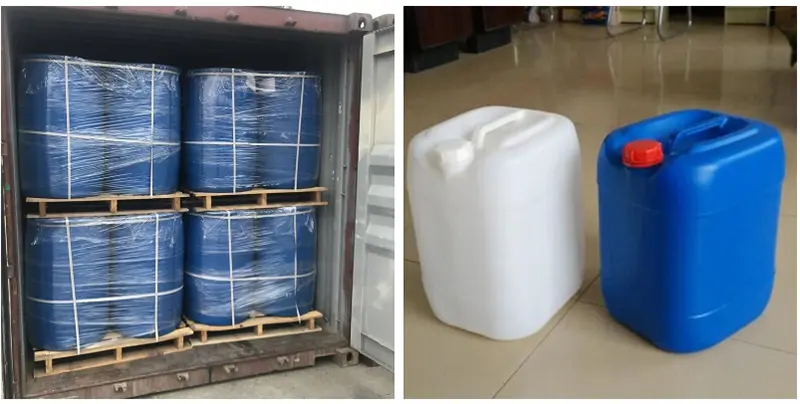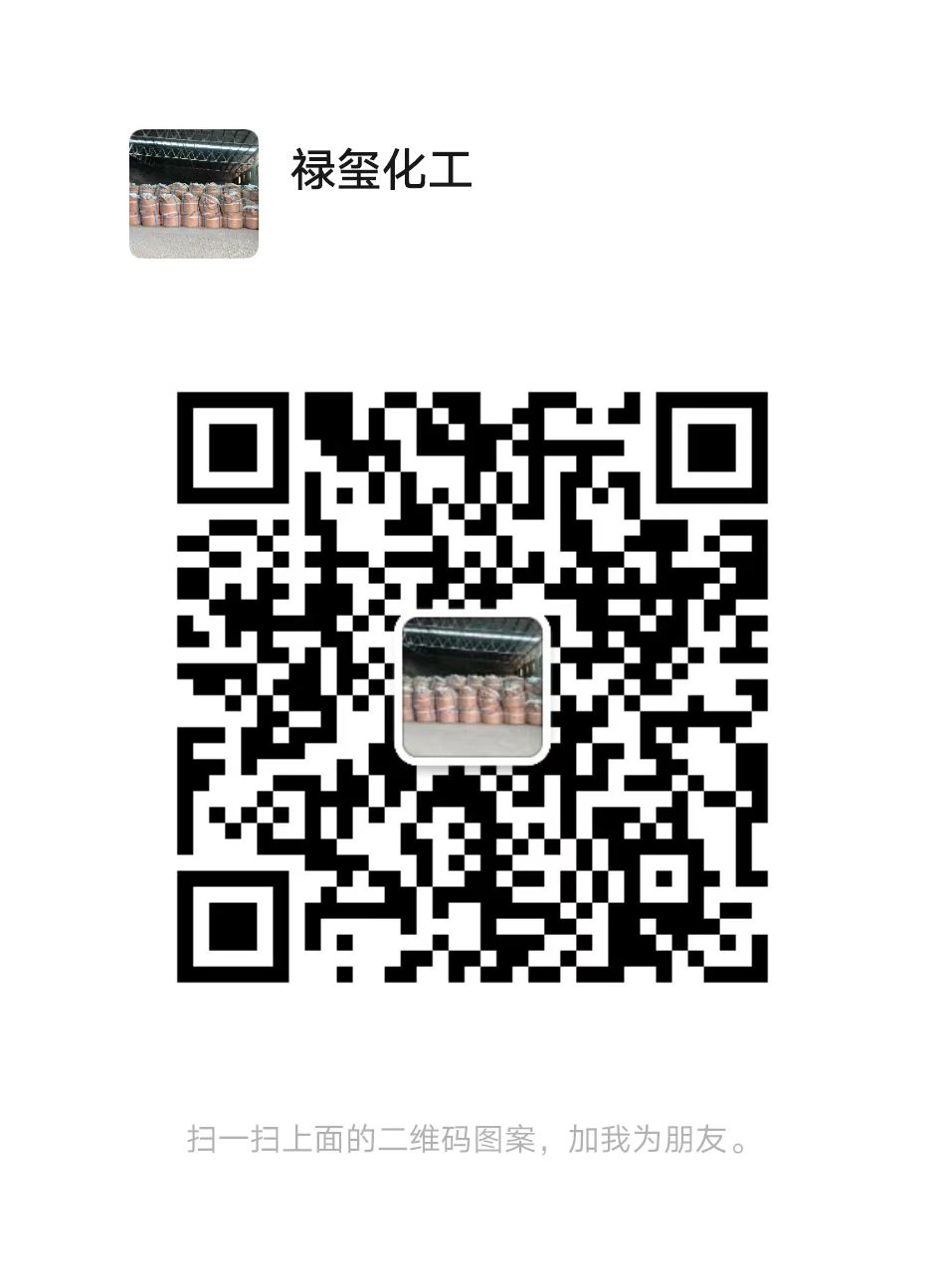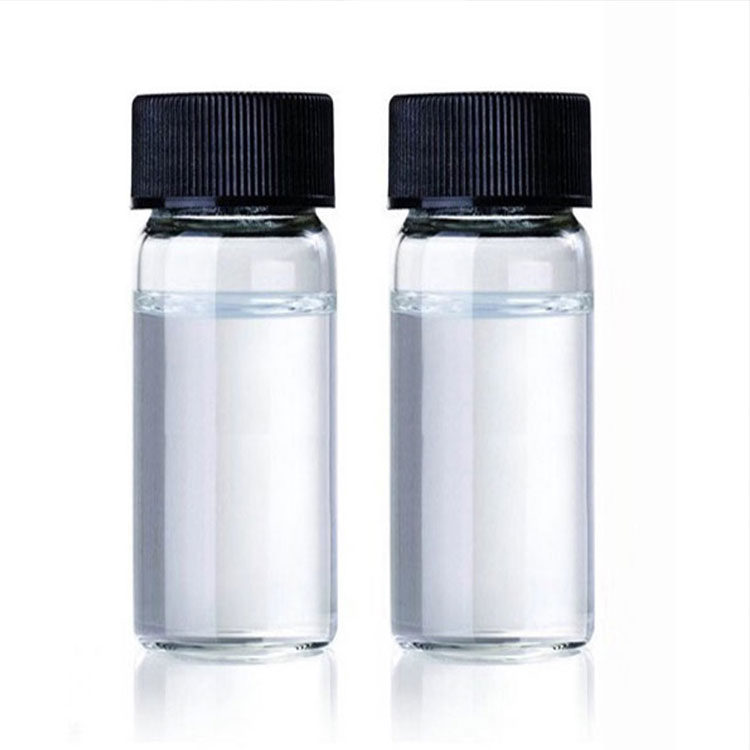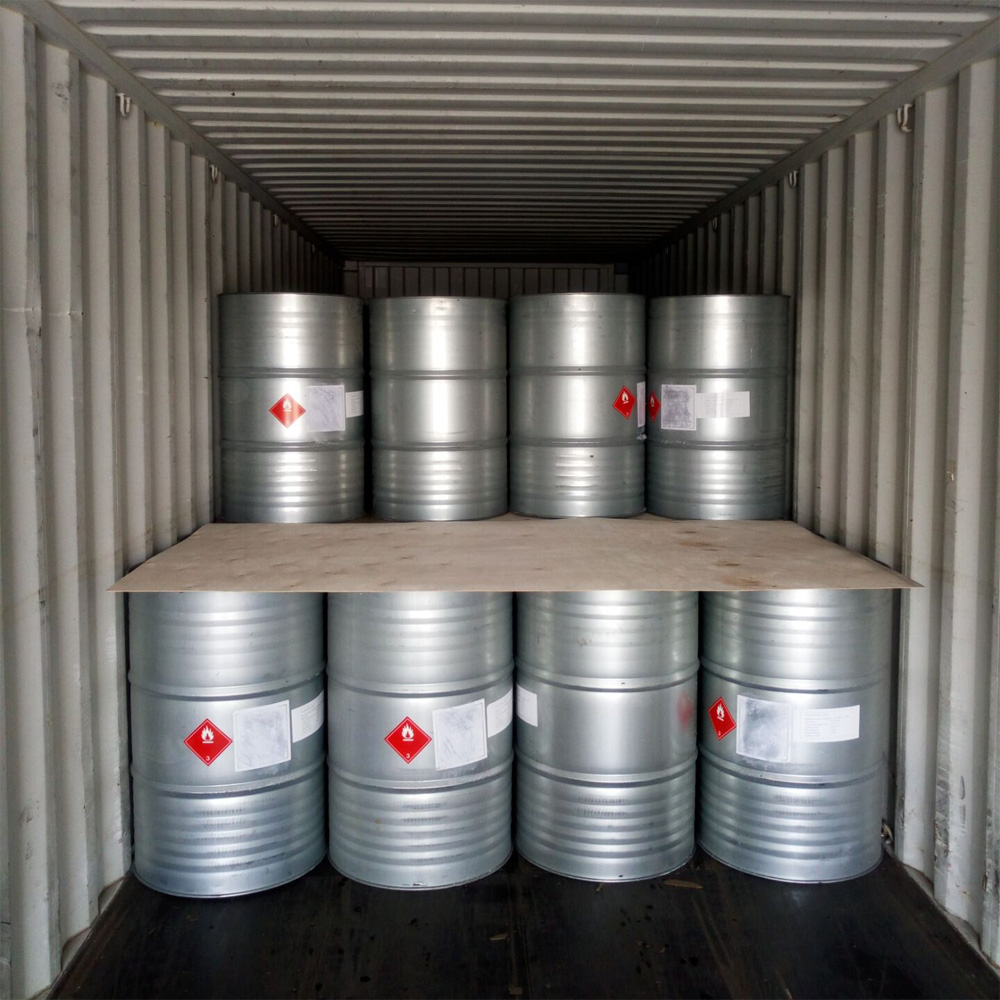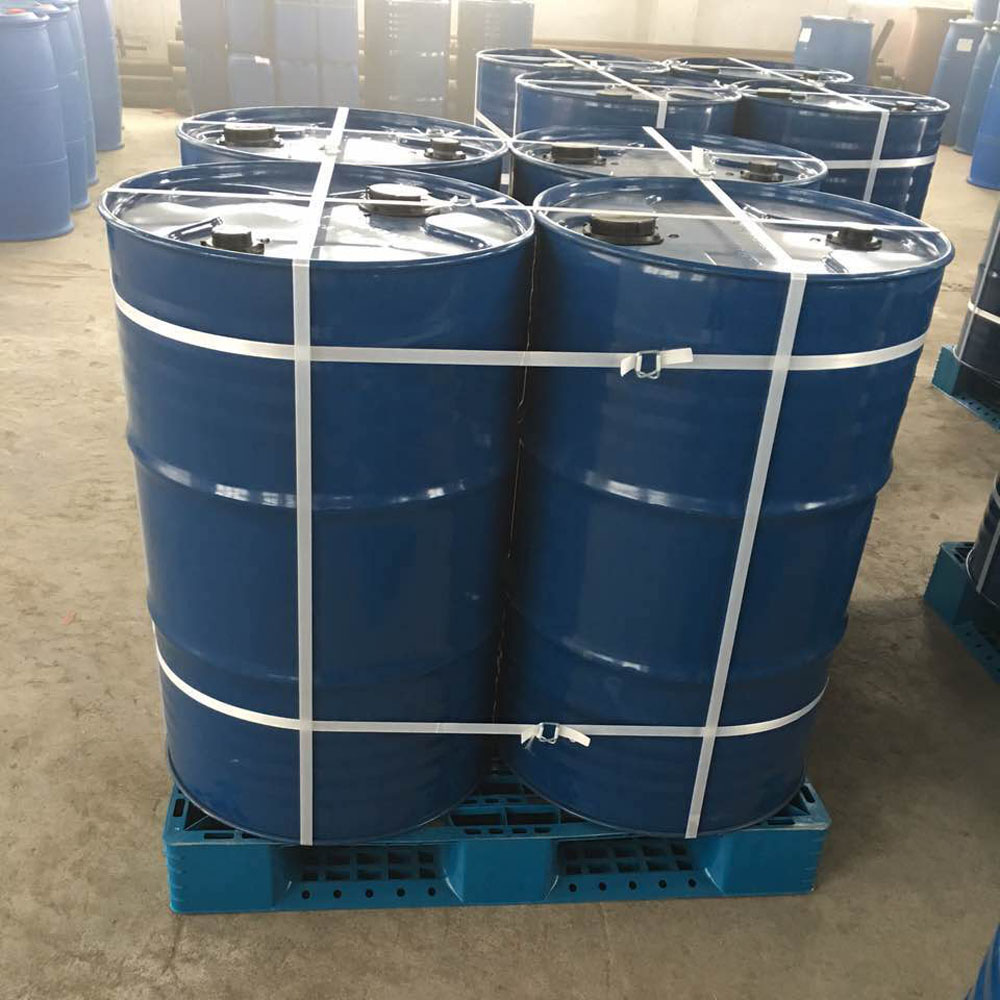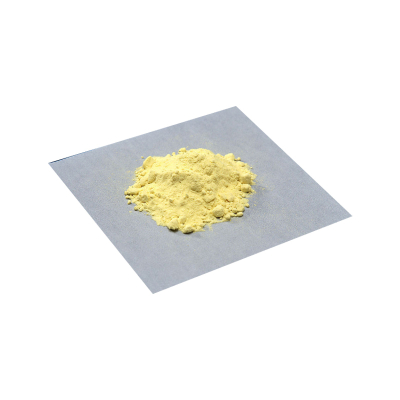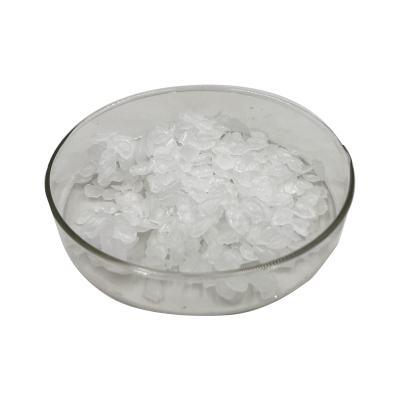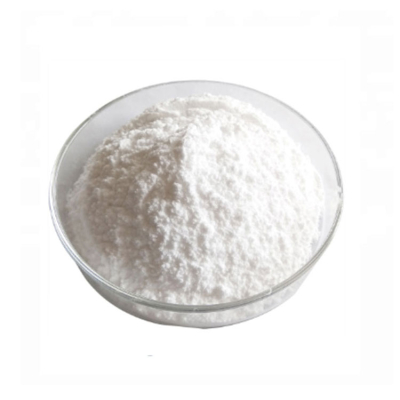Dibutylamine CAS#111-92-2
Dibutylamine CAS#111-92-2 Promotion Season Now in Store and Free Sample for Testing with Factory Price
Chemical Name:Dibutylamine
CAS No.111-92-2
Molecular Formula:C8H19N
Molecular weight:129.24
Sample: Available
Mode of Transportation
1. By Air, fast but expensive.
2. By Sea, usual and economy.
3. By Train, suit for middle Asia countries.
4. By Express, suit for small package.
We only provide highest quality goods available, accompanied by after support!
Products Description of Dibutylamine CAS#111-92-2
Pure di-n-butylamine is a colorless liquid, m.p.-60℃ (-61.9℃), b.p.159℃ (48℃/1.73kPa), n20D1.4177, relative density 0.767 (20℃), f.p.41℃, soluble in water, acetone and benzene, and easily soluble in ethanol and ether.
Dibutylamine Chemical Properties
Melting point | −62 °C(lit.) |
Boiling point | 159 °C(lit.) |
density | 0.767 g/mL at 25 °C(lit.) |
vapor density | 4.46 (vs air) |
vapor pressure | 1.9 mm Hg ( 20 °C) |
refractive index | n |
Fp | 106 °F |
storage temp. | Store below +30°C. |
solubility | water: soluble3.8g/L at 20°C |
pka | 11.25(at 21℃) |
form | Liquid |
color | White |
PH | 11.1 (1g/l, H2O, 20℃) |
Odor | Weak ammonia. |
explosive limit | 0.6-6.8%(V) |
Water Solubility | 4.05 g/L (25 ºC) |
Merck | 14,3032 |
BRN | 506001 |
Dielectric constant | 3.0(20℃) |
Stability: | Stable. Combustible. Incompatible with strong oxidizing agents, most common metals, strong acids. Vapours may flow over surfaces to a distant source of ignition. Can form explosive mixtures with air. |
InChIKey | JQVDAXLFBXTEQA-UHFFFAOYSA-N |
LogP | 2.1 at 23℃ |
CAS DataBase Reference | 111-92-2(CAS DataBase Reference) |
NIST Chemistry Reference | 1-Butanamine, N-butyl-(111-92-2) |
EPA Substance Registry System | Dibutylamine (111-92-2) |
Safety Information
Hazard Codes | Xn,T |
Risk Statements | 10-20/21/22-35-23-21/22 |
Safety Statements | 45-36/37/39-28A-26-23 |
RIDADR | UN 2248 8/PG 2 |
WGK Germany | 1 |
RTECS | HR7780000 |
F | 10 |
Autoignition Temperature | 594 °F |
TSCA | Yes |
HS Code | 2921 19 99 |
HazardClass | 8 |
PackingGroup | II |
Hazardous Substances Data | 111-92-2(Hazardous Substances Data) |
Toxicity | LD50 orally in rats: 550 mg/kg (Smyth) |
Product Application of Dibutylamine CAS#111-92-2
Synthetic intermediate. Used in the production of dyes, rubber vulcanization accelerators, corrosion inhibitors, drugs, and oil additives. This product is toxic, with an oral LD50 of 550 mg/kg for mice. Dibutylamine is used to produce dithiocarbamate accelerators. For example, zinc dibutyl dithiocarbamate (accelerator BZ) is obtained by substitution of accelerator TP with ZnCI2. And accelerator TP (sodium dibutyl dithiocarbamate) is obtained by the reaction of dibutylamine with carbon disulfide and sodium hydroxide. This type of product is a super accelerator, and is generally used in latex production because of its short scorch time. Accelerator TP reacts with NiSO4 to obtain antioxidant NBC. This product protects natural rubber, styrene-butadiene, chloroprene and other synthetic rubbers from heat, ozone, and weather aging. Dibutyl dithiocarbamate (molybdenum, lead, antimony), such as dibutyl lead. Used as a petroleum additive, it has the functions of anti-oxidation, anti-wear, and anti-extreme pressure. Accelerator TP is oxidized with oxidant potassium ferrocyanide at a temperature below 0°C to generate tetrabutylthiuram disulfide. It is also a super accelerator for natural rubber and synthetic rubber, and can also be used as a vulcanizing agent.
Factory and Equipment Show
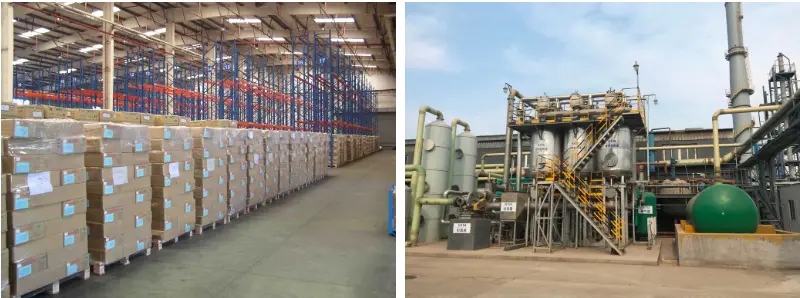
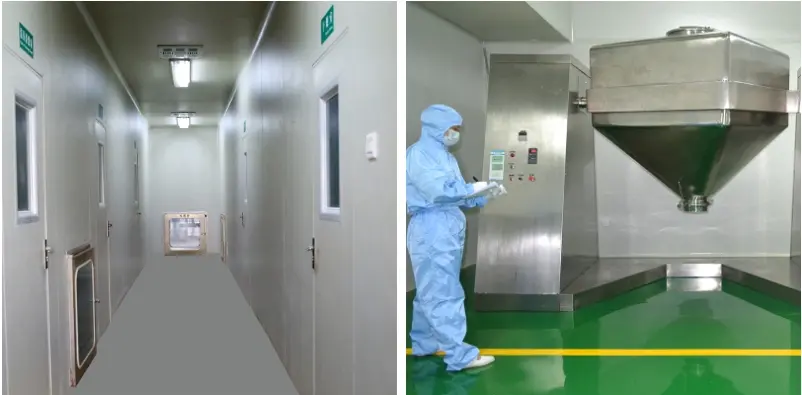
Fast delivery time
Inventory 2-3 working days New production 7-10 working days
